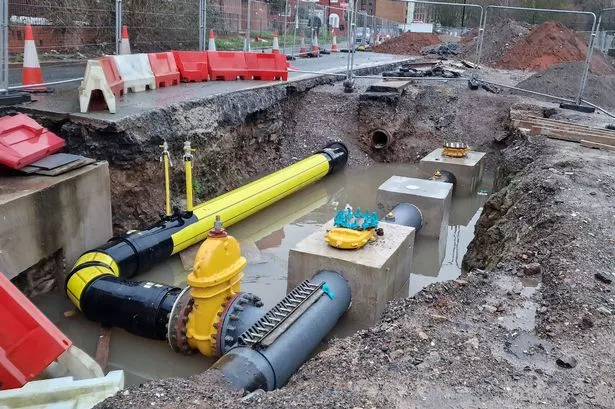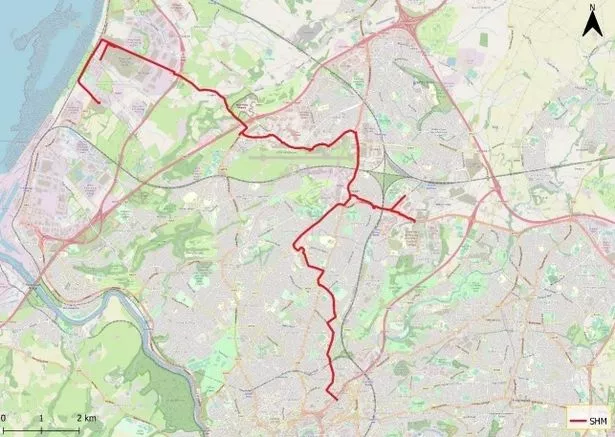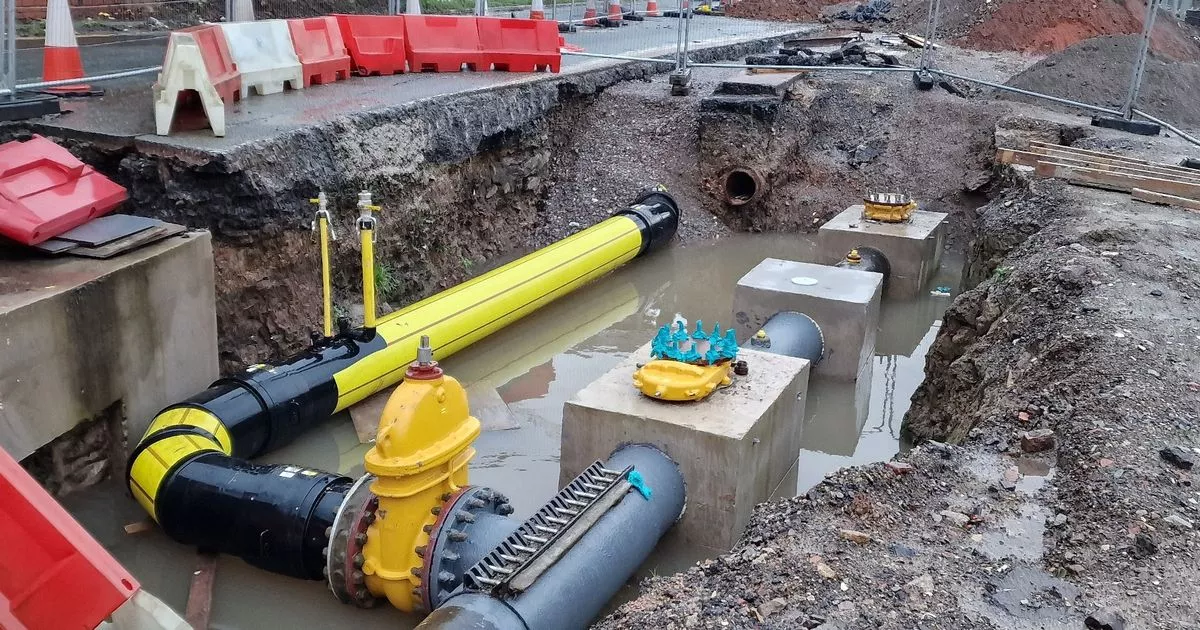Around 3,600 council homes are due to be connected to district heat networks Heat network pipes have been installed in several parts of Bristol(Image: Bristol City Council)
Heat network pipes have been installed in several parts of Bristol(Image: Bristol City Council)
Thousands of council tenants in Bristol will switch from heating their homes with gas boilers to a district heat network in the next few years. But councillors have questioned how this will help the push towards net zero as the heat networks could partly be fuelled by burning plastic rubbish.
Heat networks across the city are expanding, with large pipes laid underground carrying hot water to homes. This method of heating is seen as more climate friendly than burning natural gas, a fossil fuel, with experts suggesting a wider roll-out combined with heat pumps as well.
Much of the work to wean Bristol off of fossil fuels will be carried out by two companies, who signed a huge deal with Bristol City Council, known as City Leap. Ameresco is the lead firm, whose plans include building new solar farms, while Vattenfall is focusing on heat networks.
The largest landlord in the city, the council is now considering how to change the fuel source for heating its thousands of homes. Councillors on the housing policy committee were updated on the heat decarbonisation strategy on Friday, September 19.
Green Councillor Jerome Thomas said: “Everybody goes ‘oh, district heating networks are fantastic’. Well, the district heating networks in Scandinavia are run off burnt rubbish. Actually, if our district heating networks are running off burnt rubbish, we’re going to be recycling more, we won’t have low-carbon forms of district heating.
“Is that district heating coming from water exchanged from the harbour? Great, that’s low-carbon. Is it coming from burning of Canadian wood pellets? Not very good. Or is it coming from burning rubbish? Also not very good.”
Every day more than 1,000 tonnes of rubbish are carried on a train through Bristol, with much coming from west London, to an energy-from-waste plant in Avonmouth. Vattenfall has a plan to build a “strategic heat main” — a 20-kilometre pipe carrying hot water from energy-from-waste plants to homes across Bristol, as well as other sources of heat like water in former coal mines.
 The red line shows where the strategic heat main would be laid(Image: City Leap)
The red line shows where the strategic heat main would be laid(Image: City Leap)
Sam Robinson, energy and renewables manager at the council, said: “We’re a customer for district heating, the same as lots of other large buildings in the city. Obviously we don’t determine what the fuel sources are that district heating providers use. Other than to agree with your point, there’s not much I can say on that.”
A quarter of the greenhouse gas emitted in Bristol comes from using gas in homes. 23,000 homes owned by the council use gas for heating and hot water, with most having individual gas boilers and one in eight homes having communal gas heating. From 2035, no new gas boilers will be installed. From next year, gas cookers and hobs will be phased out.
The strategy is expected to take a quarter of a century to roll out, costing £600 million over 25 years. This will include retrofitting homes with better insulation, so less energy is needed to heat them. Old homes tend to leak out heat, like through gaps in windows, with inefficient insulation.
District heating will be rolled out to council blocks with communal gas boilers, and low-rise blocks, flats and some houses. Communal heat pumps could be rolled out on individual blocks of flats or multiple buildings. And individual heat pumps will be installed on some houses as well. An estimated 3,600 council homes will be connected to district heating.
Instead of getting dumped in landfills, the majority of rubbish that isn’t recycled now tends to be incinerated at energy-from-waste plants, which then generate electricity. It’s unclear how much carbon dioxide is emitted by incinerating non-recyclable waste. But much of this rubbish is plastic, which is made from fossil fuels.
Heat currently generated at energy-from-waste plants is lost, so capturing it for the heat network could be more efficient. Speaking to councillors in 2022, Stuart Allison, strategy director at Vattenfall, said that heat there is “going up the chimney for the birds at the moment”. He added the firm would explore carbon capture technologies, to reduce emissions of greenhouse gases.
